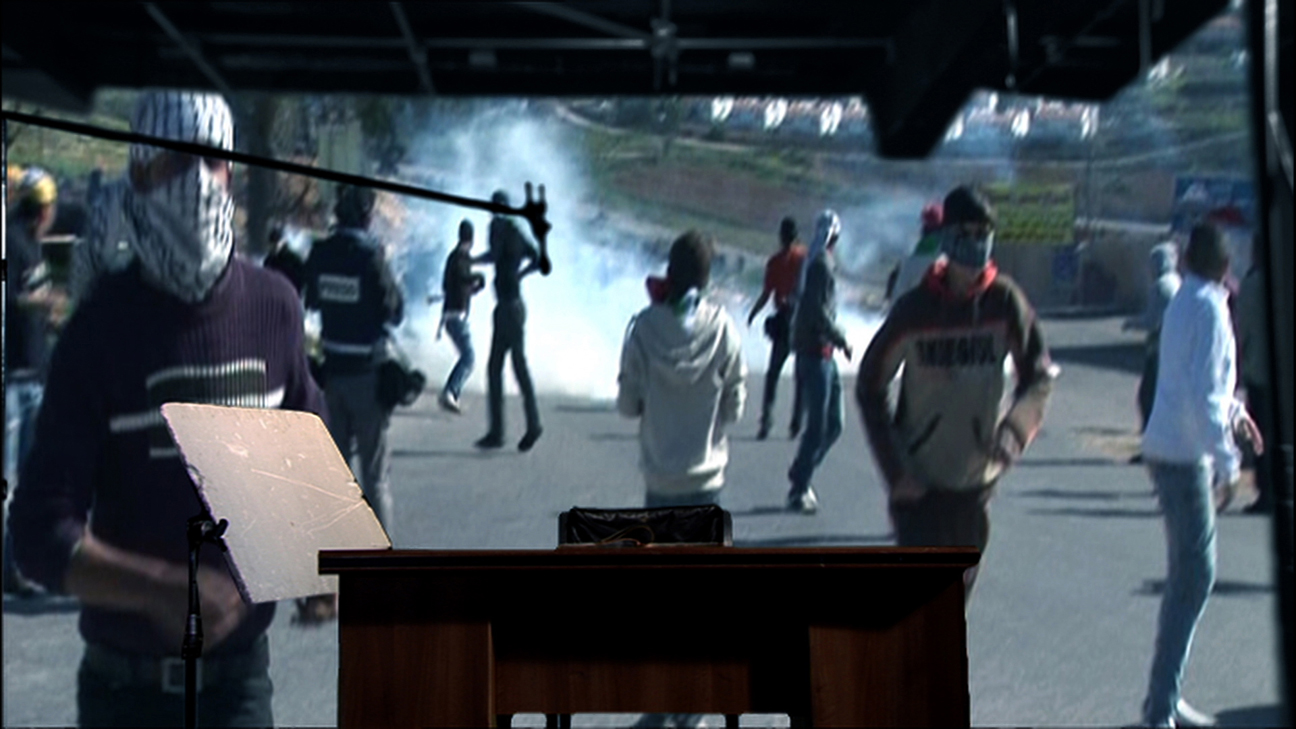History is written by the victors and laws by the occupiers. That’s the way it works in Ra’anan Alexandrowicz’s intelligent but tedious doc about Israel’s administration of civil justice—by military judges—in the occupied West Bank after 1967. The film comprises several interviews with retired IDF lawyers who also created some laws in the occupied territories. It was by their rule, in military courts, that thousands of Palestinians have been held in “administrative arrest” (before actually doing anything) and given long, futile sentences for throwing stones at settlers and soldiers in the West Bank. (Killing and suicide bombs are another matter.) They also provided a legal foundation for seizing “dead land,” then turned into Israeli settlements, via a footnote in the legal code of the Ottoman Empire. All but one of these judges seem satisfied by their work as Alexandrowicz cross-examines them in a highly theatrical setting.Perhaps hoping to lend his dry subject some of Errol Morris’ eccentric visual presentation, Alexandrowicz films the judges in front of a green screen on which documentary footage of the occupation is projected. Then, as old case files are quoted and rehashed with the judges, there’s a third visual element in the constant subtitles (Hebrew to English) in the foreground. (Alexandrowicz also adds his own gratuitous commentary on the artifice of these staged hearings—more stuff for us to read.) So: four decades of history, three simultaneous elements to watch, and The Law in These Parts buckles under the load.If you care deeply about the subject, maybe you can follow Alexandrowicz’s thread. But if you do, your mind is already made up—so there’s really no point in watching. Those who consider the occupation illegal will detest the white-haired old judges (one in a wheelchair). Those who agree that “Security comes before human rights,” per one judge, will scoff at Alexandrowicz’s soft liberal bias. His position is clear, even if the movie is a didactic chore to sit through. After about 90 minutes, he simply reads back to the judges a Palestinian prisoner’s account of torture, forced confession, and imprisonment. It’s a dramatic coup that would be well suited to the stage. But in real life, we know, the conflict drags on. One dull little movie won’t change anyone’s mind—or Ariel Sharon’s “facts on the ground.” film@seattleweekly.com
History is written by the victors and laws by the occupiers. That’s








